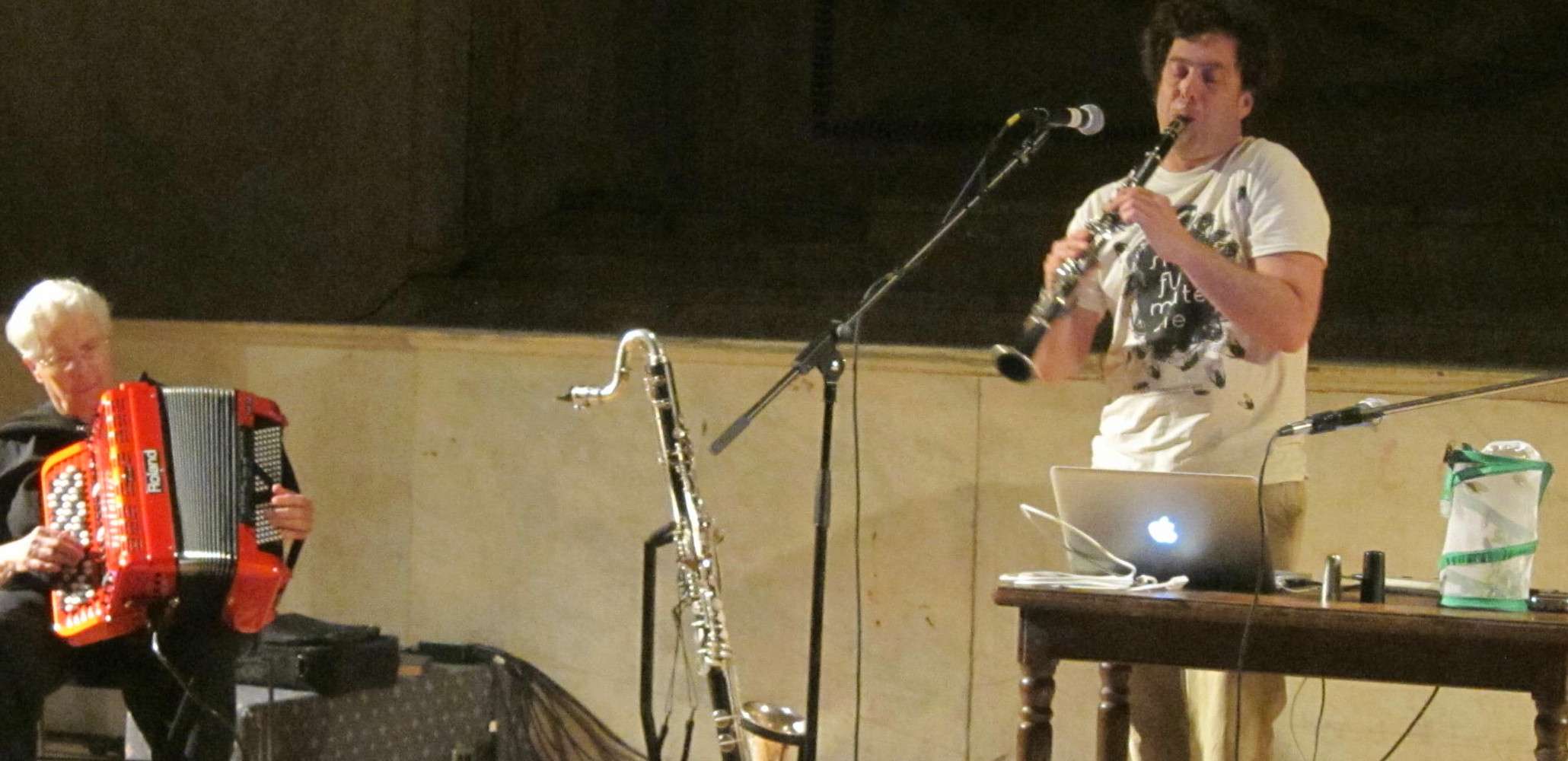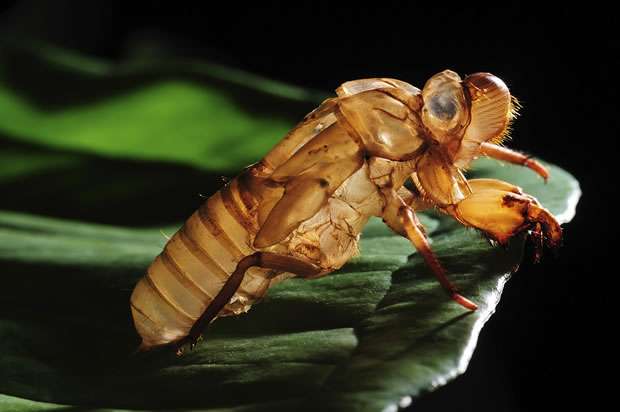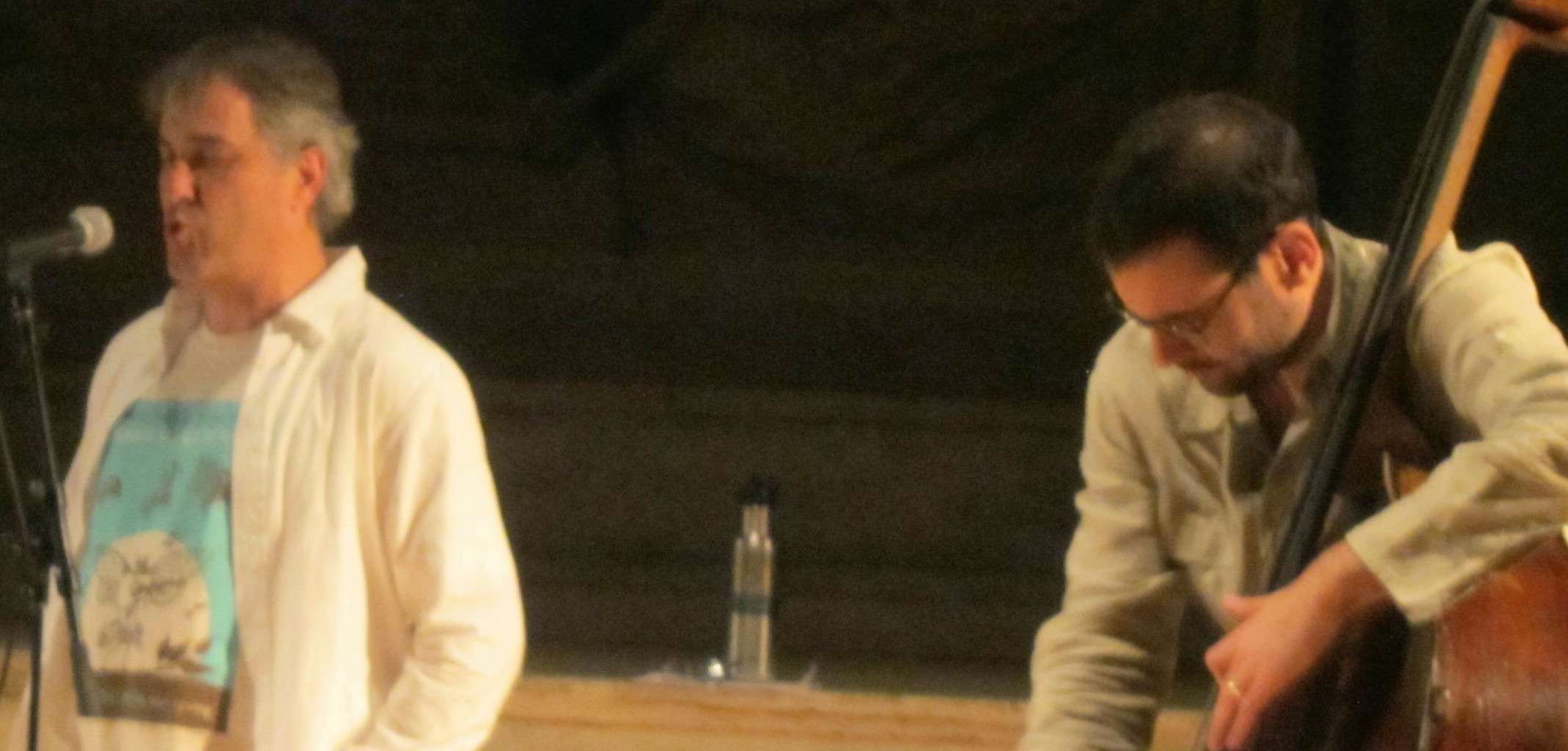|
Back
Insectivorous Intimacies New York
Judson Church, Washington Square South
05/22/2013 -
Richard Robinson: Song of the Cicada (World Premiere), Insect Music, based on the calls, chirps and clicks of various insects
Insect music: Pauline Oliveros (Electronic accordion), David Rothenberg (Clarinets and laptop) Timothy Hill (Overtone singing), Garth Stevenson (Double bass), Cicadas (Newly hatched from New Jersey and recorded), Robert Krulwich, Tim Blunk, Unru Rothenberg, Richard Robinson (Panel discussion)

J. Oliveros, D. Rothenberg, Cicada Jar (© Coco T. Dawg)
Insect sounds have been musically simulated since Josquin Desprez wrote his Grasshopper some six centuries ago. Since then, Mussorgsky, Bartók, Jean Françaix, Rochberg and of course Rimsky’s celebrated Bumblebee have attempted the twittering, chirping and (primarily), abdomen-rubbing attractions which our 10-million species use to get laid.
It takes a polymath innovator like David Rothenberg–writer, philosopher, composer, ethnomusicologist, clarinetist, amateur entomologist to use actual insects for his creations.
Last night, Judson Church, New York’s grand innovator which rarely does liturgical things, presented an eclectic concert of “Insect Music.” It was in honor of the 17-year cicada, an insect whose nymphs burrow down into the earth and stay there for exactly 17 years (or 13 in some species). When they come out, as they do this year, they cause havoc on farms. But don’t blame the cicada for eating vegetation. As gourmets who wait almost two decades to gorge themselves (in what was described as a “17-year-old high school reunion”), the cicada sticks its mandible into stems and sucks out the juice.
Like any schoolkid, cicadas don’t want the vegetables. They want the sugary stuff.
Last night was more than entomology. Like cicadas embrace their farms, this embraced entomology, political psychology, and finally music, with eight fascinating pieces.
The first was an illustrated lecture by cicada specialist Dan Mozgai, one of America’s great disseminators of accurate information about periodic cicadas through his website www.cicadamania.com. The audience, divided between entomologists and musicians had all the information they needed–including the best way to cook cicadas. More to the point were vocalizations of the different sounds.
By far the most imaginative part was a film by Richard Robinson, Song of the Cicada, inspired by Mr. Rothenberg’s own book, Bug Music. More than an experimental film, this explored Chinese poetry of the cicada, old drawing parallels between the cicada’s life underground and the ordeal of former political prisoner Tim Blunk.
Mr. Blunk had been an activist against our wars in Central America–El Salvador, of course, but the genocide in Guatemala, the remnants of which I saw only last year. His 13-year incarceration–”an underground society” which is unknown to the “proper” people above ground–was poignant in itself (as he revealed in a panel discussion). And while us bug-lovers don’t like seeing our buzzing friends used as metaphors, this one was appropriate.

A cicada (© Pailoolom/iStockphotos.com)
The final eight sections dealt with more than cicadas (though a surprise was awaiting us). Mr. Rothenberg has recorded the sounds of perhaps hundreds of insects, and his program included riffs on tree-walkers, Lesser Water Bugs, and an experiment at Harvard dealing with the sounds of different flea molecules.
The ensemble was as unique as the performance. Mr. Rothenberg used both clarinet and bass clarinet, as well as sounds–both insectivorous and electronic–from his computer. To his left was Pauline Oliveros, on an electronic accordion, the sounds of which were more quanta than squeezebox.

T. Hill, G. Stevenson (© Coco T. Dawg)
On the other side was bassist-composer Garth Stevenson, and “Overtone singer” Timothy Hill, whose notes reach as low as the lowest Tibetan singers. (Who, I believe are themselves overtone singers.)
The result of these strange dark instruments, and the gyrating, faintly jazzy/meditative clarinet of Mr. Rothenberg and the electronically amplified insect sounds, had an amplitude which neither Messrs Bartók nor Rochberg had ever attempted. This was not soothing “New Age” stuff, nor was the symbiotic sounds of Alan Hovhannes’ And God Created Great Whales. In a way, it was white noise alongside the pumping, almost subconscious sounds of bass, accordion and overtone singer, alongside the sole melodic instruments of Mr. Rothenberg.
But, like the finest performances, we had a surprise guest artist here–or rather, about a dozen guest artists. Twelve cicadas had just come out after 17 years in New Jersey. They were deftly plucked, put in a jar and driven to Judson Church. Not for a baptism but a christening into show business.
Mr. Rothenberg put some on his arm and tried to make them give their mating call through the computer. Well, those insects, like Mr. Blunk, were just getting used to being in the “overground” or perhaps had stage fright, since they kept mum. But this grateful audience gave them the applause they well deserved. And the larger ones today probably amongst the real sopranos of New Jersey.
By the way, we must ask, “Why 17 years?” Nobody quite knows, but Mr. Mozgai did reveal that the Japanese had constructed a huge computer model of the 17-year-cicada for the answer.
And the revelation?
Mr. Mozgai sighed. “We still don’t know why they act the way they do.”
Just another cosmic mystery from our infinitely mysterious cosmos.
Harry Rolnick
|